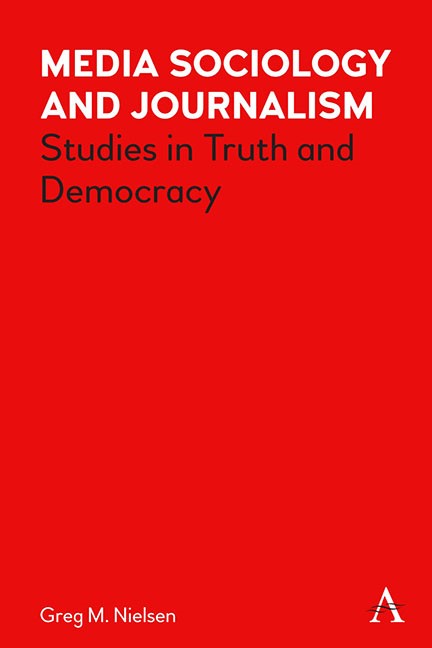Book contents
- Frontmatter
- Contents
- Acknowledgments
- Introduction: Between The Posts
- 1 Fake Populism and News: Freedom versus Democracy
- 2 Political Theory: Deliberative, Agonistic and Dialogic Democracy
- 3 Contemporary Sociology, Journalism and Society
- 4 Acts of Journalism: Truth, Ghosts and Migrant Subjects
- 5 Writing Inequality into the Urban Commons
- 6 Exotopy and Cultural Boundaries: The Secular Question in Quebec
- Conclusion: Is Another Journalism Possible?
- References
- Index
6 - Exotopy and Cultural Boundaries: The Secular Question in Quebec
Published online by Cambridge University Press: 15 November 2023
- Frontmatter
- Contents
- Acknowledgments
- Introduction: Between The Posts
- 1 Fake Populism and News: Freedom versus Democracy
- 2 Political Theory: Deliberative, Agonistic and Dialogic Democracy
- 3 Contemporary Sociology, Journalism and Society
- 4 Acts of Journalism: Truth, Ghosts and Migrant Subjects
- 5 Writing Inequality into the Urban Commons
- 6 Exotopy and Cultural Boundaries: The Secular Question in Quebec
- Conclusion: Is Another Journalism Possible?
- References
- Index
Summary
If journalists rarely address the actual subjects of migration, inequality or cultural and religious diversity as their implied audience, it follows that public understanding of the experience of these subjects is partially grasped at best. To help fill this lacuna, media sociology needs to account for the exotopy or outsidedness that gives a two-sided surplus of seeing between in-groups and out-groups, haves and have-nots and symbolic forms of wedoms and theydoms all of which orientate the journalist (Hartley 1998). As seen in Chapter 5, journalists frame stories about have-nots and those outside the commons to their have audiences and not the other way around. Unraveling how conditions are framed in acts of journalism points to where we can begin to think about how to expand the implied audience by including a journalist in the reported speech through a co-experience with the excluded. Each side might see the other in ways the other cannot see themself.
This chapter presents a third example of how acts of journalism both contribute to the civil sphere and to social exclusion in coverage on controversies about cultural and religious diversity. It also demonstrates yet another version of the current historical partisan, epistemic and existential division in Western societies. Are laws banning the burqa, niqab or hijab in schools in France, Belgium and some German Landers as well as some schools in the UK all exceptional measures? Is the 2021 Swiss referendum vote narrowly in favor of banning face coverings in public not uniquely aimed at recent Islamic migrants? The banning of any religious symbols by Quebec public officials as required by Bill 21 in 2019 is similar to these cases in that the wearing of any ostentatious religious signs is banned for certain public-sector workers. The question arises as to how much of the contemporary public discussion is simply a recasting of an older colonial story about who is a citizen and who is an outcast. The answer is that liberal democratic societies, despite their constitutions and rights charters, have always masked paradoxical limits and uneven definitions for the meanings of equality, freedom of expression, mobility and assembly (Badiou 2012, 2017; Rancière 2005; Mouffe 2000).
- Type
- Chapter
- Information
- Media Sociology and JournalismStudies in Truth and Democracy, pp. 151 - 178Publisher: Anthem PressPrint publication year: 2023

